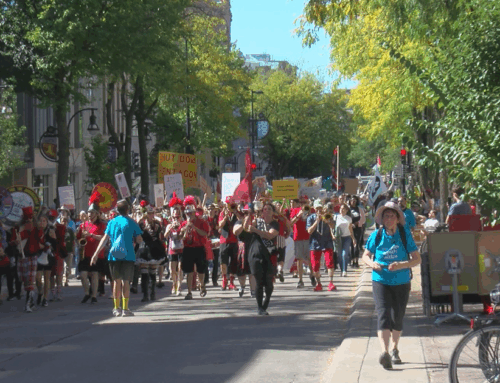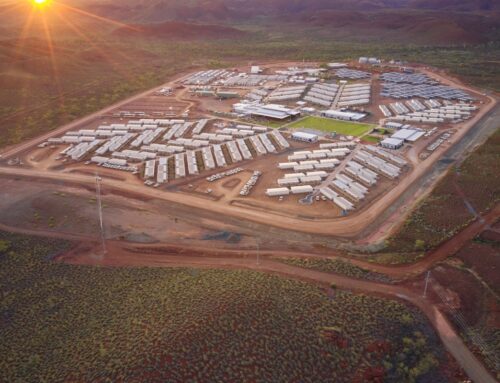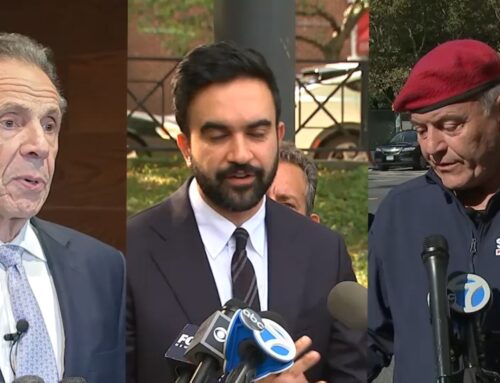Minnesota’s first non-tribal recreational dispensaries open two years after legalization
September 28, 2025
This story was originally published by the Minnesota Reformer.
Alyssa Chen
Minnesota Reformer
It felt like a combination of a fast-casual restaurant, a health store and a mall pop-up shop, except at this retailer, you can buy what you need to get high.
Customers packed into the Brooklyn Park location of RISE dispensaries on its first day of adult-use cannabis sales on Sept. 17, one of the first non-tribal pot shops to open about two years after the Legislature fully legalized cannabis in 2023.
“I’ve been waiting for them to make it recreational ever since they opened,” said Elijshae Washington, a 29-year-old, stay-at-home mom who lives nearby. “It took way too long.”
Around 40 people stood in the adult-use line, which led to a long counter manned by nine staff members. The medical marijuana line had at most one or two customers at a time.
As those who have been to recreational dispensaries in other states can attest, the experience is about as far from buying weed from a guy in a gas station parking lot as you can get. It even stands in contrast to how THC gummies are sold at a gas station store, which is to say, just like how regular candy gummies are sold at a gas station store.
At a dispensary, however, “there’s more of the process of making sure it’s safe and everything. You kind of take a risk with it on the street, a little bit,” Washington said.
Prices, which ranged from $40 to $50 for an eighth of an ounce, are “a little high, but you don’t have to wait for anybody,” said Heather Hiivala, 54. “You can just come and get it, you know?”
The scene at RISE last week was just one of many all over Minnesota, where cannabis aficionados over 21 lined up at the first non-tribal recreational marijuana dispensaries. Though the state’s stoners have, for years, been able to legally grow weed, possess marijuana and buy THC edibles at thousands of breweries, gas stations and head shops, it was the first time non-tribal retailers could sell the real, green stuff — THC flower — at a dispensary to adults without medical cards.
The wait since the drug was legalized — edibles and drinks in 2022 and for real in 2023 — has been long. So far, two dispensary franchises have started selling recreational weed — Green Goods and RISE, which both previously sold only medical cannabis products. They join a handful of tribal dispensaries, such as NativeCare in Red Lake, which got a head start in selling non-medical cannabis thanks to compacts between Minnesota and tribal nations.
RISE delivered a streamlined experience complete with self-service kiosks and staff walking around with QR discount codes, dressed in purple tie-dyed shirts that read “Best Buds Forever.”
Customers perused one of several curated brand displays featuring empty product packaging — the drugs were kept behind counters — and merch on mannequins, including a dog hoodie on a dog mannequin. The store was oddly odorless.
It was a true 21st-century commercialized experience that almost makes you forget the real possibility of addiction and the risk of various side effects like respiratory problems (when smoking), lower neurocognitive functioning, especially for young users, and even psychosis.
Jesus Muñez, 24, usually buys THC edibles at a smoke shop in Blaine. Muñez said he feels more at ease with the process in the dispensary, which includes an ID check and sign-in upon entrance.
“I like that they’re able to show you the percentage of THC in it, too,” Muñez said. “A lot of places you go, it’s like: this is what we have, take it or leave it.”
Customers also said they were curious about the quality of the products.
“I’m kind of trying to see what this is like to see how good the flower is or not good it is, but we’ll see,” said Ray Lawrence, 41, who grows his own weed.
Lawrence expressed some pessimism on how the government will handle the nascent legal marijuana industry.
“I’m just waiting for them to screw this up,” he said, anticipating a rise in taxes.
As of a new law that took effect in July, Minnesota’s cannabis tax is 15%. After adding the state’s sales tax, the total tax rate for cannabis is around 22%, and higher in many metro cities. That’s the fourth highest in the nation, according to the Star Tribune. The hefty levy has some industry watchers concerned that if taxes and prices are too high, people will opt for the black market, which would partially defeat the purpose of legalization.
On quality and taxes, the jury’s still out.
Search
RECENT PRESS RELEASES
Related Post




